Halal Economics: Toolkit For Economic Jihad (Part 5 Of 5)
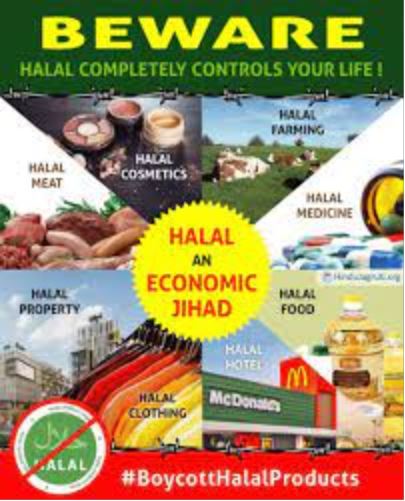

This is the concluding article of the series “Halal Economics: Toolkit for Economic Jihad”. Part1, Part2, Part3, and Part 4 were published on July 4th, July 13th, November 17th, November 23rd, 2021 respectively.
Most of us may be perplexed after reading my last 4 articles and will be having a question that the word Halal “ONLY” is used at meat shops. But never heard the term “Halal Economics”.
You may be contemplative that the Economics of the Muslim countries may be called “Halal Economics” and the industries like “Fashion”, “Tourism”, and “Pharmaceuticals”, etc of these countries are being called “Halal Fashion”, “Halal Tourism”, and “Halal Pharmaceuticals” respectively. Also, the metaphor ‘Halal‘ may have been added to these industries as per the Muslim religious norms and standards…
Let me stop you right here before you go further indulge in brain gymnastics…
Let us walk through How, When, and Why “Halal Industries vis a vis Halal Economics” was created? And, Does the “Quran” mention any of such industries or economics?
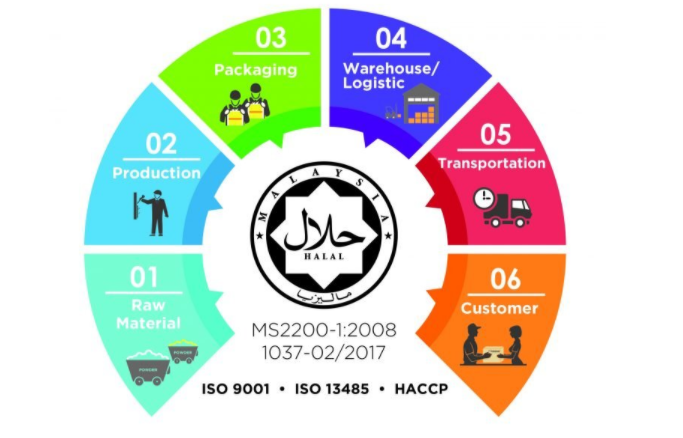
Koran and Sunnah (the teachings and practices of the Mohammed) did explicitly prohibit pork, blood, and alcohol, BUT will it dictate behavior rules, is it still the open-ended Behavior Question?
There is, however, a condition regarding the proper slaughter of animals, which should be killed “…during the hunt, or bled out either at the throat or sternum,” Bergeaud-Blackler writes in her book[1]. The halal market is an “invented tradition” that first appeared in the early 1980s, she explains, furthering a theory previously developed by British historian Eric Hobsbawm [1].
The halal food industry is a product of the “random convergence of neo-fundamentalism and neo-liberalism” during the early 1980s, Bergeaud-Blackler explained.
“At the time, these two ideologies were dominant on the international scene. Their convergence would change the theological definition of halal from ‘recommended’ to ‘required’, which is a hallmark of fundamentalism,” she said.
From Food to Banks, Clothing to Cosmetics, Vaccines to Industrial Units, All need Halal certification labels.
But the BIG QUESTION arises, Is it a religious obligation?
During the post-revolution of 1979 of Iran, the religious supreme leader Ayatollah Khomeini banned food imports, in particular meat, from non-Muslim countries. However, after an embargo led to food shortages, the supreme leader was later forced to reconsider his position. Then he considered that if Iran had to start importing meat from the West again, it would insist on the “Islamization” of the slaughtering process. Although protocols were established for the halal food industry, they were never made official by religious leaders.
“The market is facilitated by the existence of laws in secular countries that recognize religious slaughter, which was initially established for the Jewish diaspora,” Bergeaud-Blackler said[1].
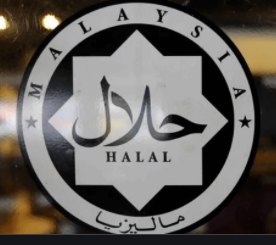
In the next couple of years, other Muslim countries, Malaysia and Indonesia followed the same suit and created a complex and much more intuitive set of rules. And this gives birth to ONLY Muslim consumers.
In the next few decades, the rest of the Muslim countries, such as the Gulf States, Africa, and Turkey, soon followed in Iran’s footsteps, leading to an increasingly complex and expansive set of rules. And thus, the “Worldwide Muslim Consumer” was born.
Eating exclusively halal not only runs the risk of cutting consumers off from public spaces, but also other forms of social interaction.
The major worrying part is the confusion between halal and purity. This has created a big divide in society as what is allowed and what is forbidden, which further creates social anxiety and leads to avoidance. For example, people who only eat halal will not be invited by those who don’t eat halal to any event which didn’t serve halal food.
Similarly, non-halal is never invited to Halal parties how good is the relationship is between the folks? It’s all true that these acts of avoidance are accompanied by rhetoric rejecting food.
Halal economics has been praised by people but concerns have been raised that it might be used by religious extremists such as Salafists or the Muslim Brotherhood movement to promote their interpretation of Islam. Below are the countries that have raised the concerns.
A federal investigation has found that the Australian Federation of Islamic Councils (or AFIC, now renamed Muslims Australia), one of at least 21 agencies in Australia that certify halal products, fund various education programs, build mosques, provide Imams and pay the salaries of those Imams. This is where the complaints come in. Most people who complain about halal certification do so because they see it as a “Religious Tax“.
Australians have a point and their concern is very much legitimate – correct?
There were also reports of Australian halal certification companies paying bribes to the Indonesian Council of Ulamas (MUI) to obtain halal licenses. Where do these bribes end up? So, there is no doubt that halal certification is funding organizations with extremist views and activities in Australia.
Public revelations from one Australian-based halal certifier that they donate to a group called the Al-Imdaad Foundation for “charity work” in Syria. The Al-Imdaad Foundation is riddled with links to Islamist terror groups and their sympathizers.
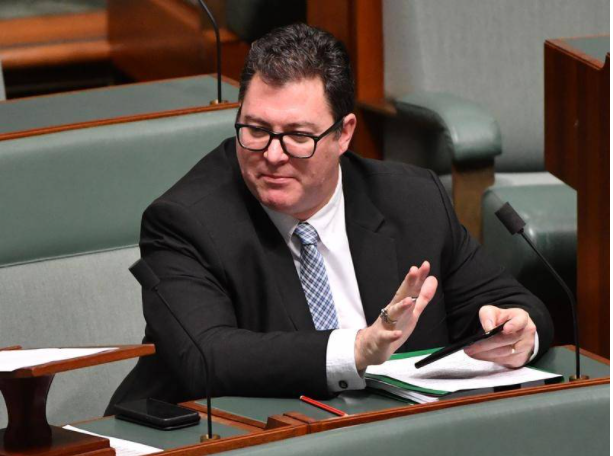
Consumers who buy halal products could be funding Islamist extremism, an Abbott government backbencher MP George Christensen claims.
Christensen said there’s no way to know where the funds from halal-certified goods end up. He said it was “outrageous” his grocery dollars were going towards a “religious tax” – listing halal-approved products such as Vegemite, Corn Flakes, and Freddo frogs. “Worse still, I don’t know whether my grocery spend is going to fund extremist versions of that religion or extremist religious activities that I would rather not see in Australia,” Christensen asked.
MP George Christensen questions whether shoppers who buy goods with the halal logo are funding a push for Sharia law – or even backing terrorists[2].
“While if it’s may not terrorism, but there is no doubt halal certification is funding organizations with extremist views and activities in Australia” he added.
The debate in Australia is still high of “Entirely Feasibility” that some halal certifiers could be financing groups such as Hamas or the Muslim Brotherhood, citing cases in the US where such links have allegedly been found
The debate is not only that Halal Economics aids terrorist organizations directly or indirectly but another big debate that has rocked Australian Parliament is that Halal Economics supports “Curbing of Women’s Rights”.
Women Activists said that “It’s lovely to know a jar of the salty black stuff is sponsoring the advocacy of robbing women of all of their marital property rights.”[2]
MP further narrated that Australian businesses are being pressured to sign up for certification, and we are talking about hundreds of thousands of dollars here – $27,000 a month for an abattoir, $40,000 a year for a chicken processor, $5000 a year for a small suburban kebab shop. “And yet there seems to be little transparency in the halal certification business“.
The profits derived from certification could be going anywhere. MP Christensen raised concern that “Unknowingly the consumers are increasingly being forced into buying halal-certified foods as more and more food manufacturers jump on the halal bandwagon, are entitled to know where the money goes“. Surely consumers are also entitled to know which groceries in their shopping trolley have passed on a religious
The cost of any such certification is paid for by the consumer, whether or not they share that particular religious conviction. And it seems with the vast range of products that are now halal approved, including Vegemite, Kellogg’s Corn Flakes, and Cadbury’s Freddo Frog, it’s almost impossible to escape it.
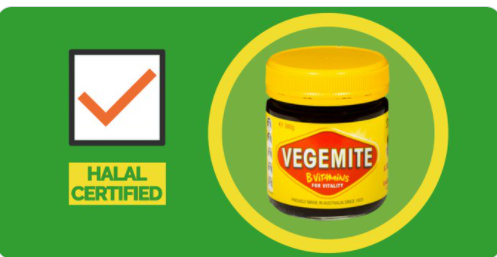
Dr. Taj Hargey, who is the head of the Muslim Educational Centre at Oxford, describes such a lack of labeling as deceptive. He reported that “It turns out that the meat in many supermarkets is also halal – though there is no recognizable label to indicate this fact to consumers," Dr. Hargey states and then goes on to say that "this is covert religious extremism and creeping Islamic fundamentalism making its way into Britain by the back door.[2]”
It has raised alarms in United Kingdom intelligence.
in the US from 2001 to 2008, there were 26 cases of charges against not-for-profit charities providing financial or material support to terrorist organizations. Direct links to Hamas and the Muslim Brotherhood were found.

US Justice Department, in 2007 and 2008, had named the Islamic Society of North America, an organization involved in halal certification, as a co-conspirator for two federal trials dealing with the financing of millions to the terrorist groups, including Hamas. It’s now well known that halal certifiers contribute to Islamic charity groups which fund Terrorist Organizations.
In 2016, France faced a terrorist attack in which two knife-wielding Islamists held churchgoers’ hostage in Normandy and also slit the throat of local priest Jacques Hamel.
French intelligence agencies found out that tax which levies on halal food and paid by French citizens unknowingly was used to fund “French Radical Islamists”.
The French government took immediate steps. Anouar Kbibech, who now heads the French Muslim Council (CFCM), said that the new body would give more transparency to the funding of mosques in France. He further said that the French Halal Food Industry could help pay for the initiative. Although the precise financing details had yet to be decided it could be in the form of a voluntary levy on the industry rather than a formal tax, which some French politicians demanded[3].
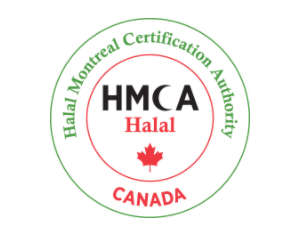
Canada is not out of Halal Sponsored Terror Funding string. Canadian Politicians have also raised concern that the same thing might be happening in Canada. But Ottawa is not aware that where Halal tax money is going. An Intelligence investigation has been demanded.
It is very perturbing to mention here that as the Halal certification business is growing around the world, illegitimate money power is being captured without consumer knowledge. This money power is being utilized in funding terror organizations as warned by various intelligence agencies. This will further strengthen Islamic Radicalism and many innocent youths will further be trapped in it.
By demanding a simple religious obligation from its followers, Islam has created a massive ecosystem out of nothing, yes exactly nothing except simply by drawing on the commitment of the devout. The World should learn the lesson that “By harnessing the power of numbers (money) they are further increasing radical illegitimate strength witnessed recently in Afghanistan, Pakistan and other parts of the world“.
It’s high time that the Non-Muslim world should stands up against the “Halal Economics Jihad” which is deeply rooted in “Bigotry & Discrimination” against these nations. This skirmish must be fought with heavy tooth and nail if the non-muslim world don’t want the history to repeat itself, whether its Al-Qaeda attacks of 9/11 on New York WTC, Pakistan ISI sponsored terrorist attacks of 26/11 on Mumbai or the Islamic Terrorist attacks of 07/08 on London, and ironically this list is endless…
[1] New book claims halal is ‘invented tradition’, not a pillar of Islam (france24.com)
[2] Terror in the Tucker Box? — GEORGE CHRISTENSEN MP
[3] https://www.ft.com/content/9bfdbe04-5804-11e6-8d05-4eaa66292c32
DISCLAIMER: The author is solely responsible for the views expressed in this article. The author carries the responsibility for citing and/or licensing of images utilized within the text.
